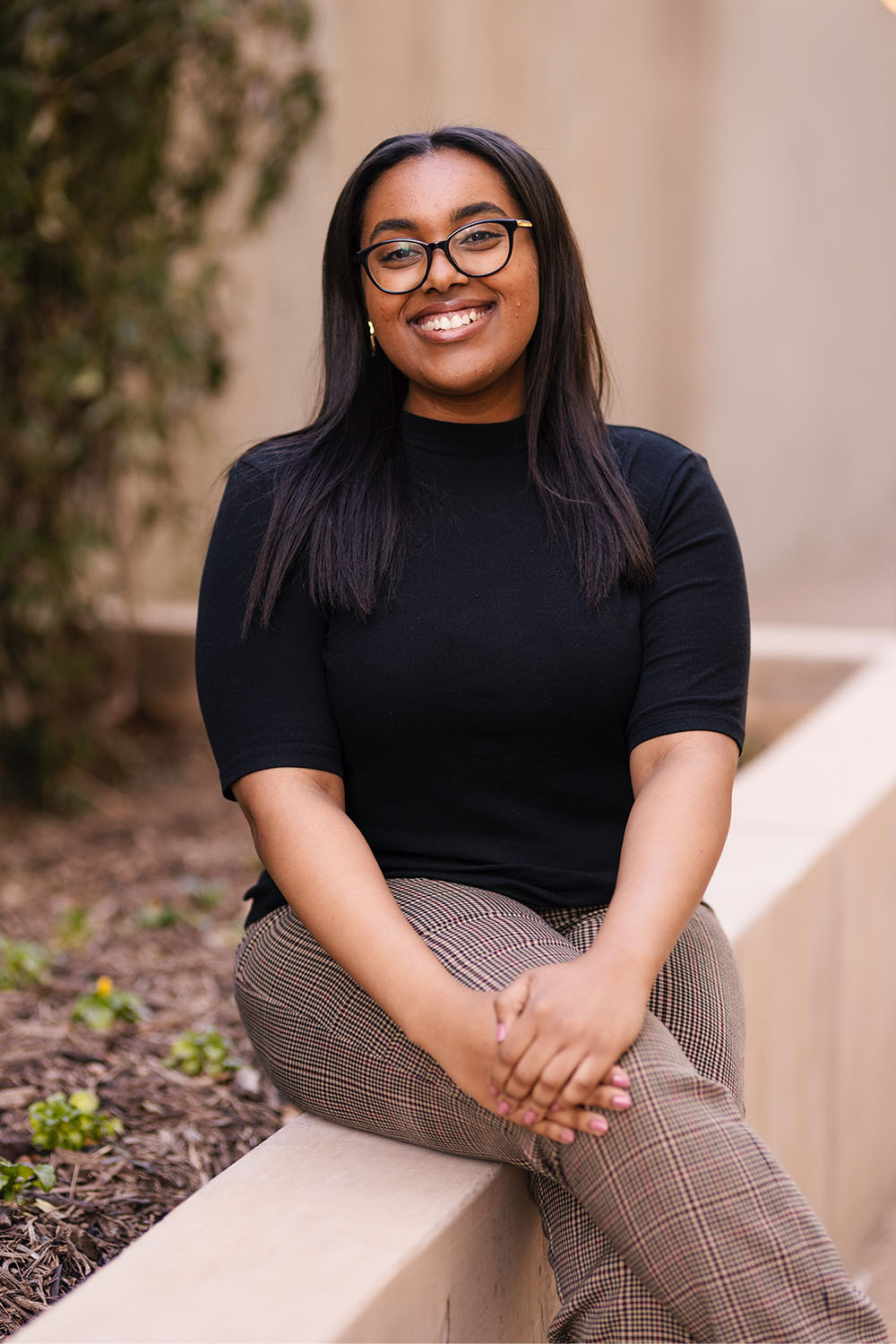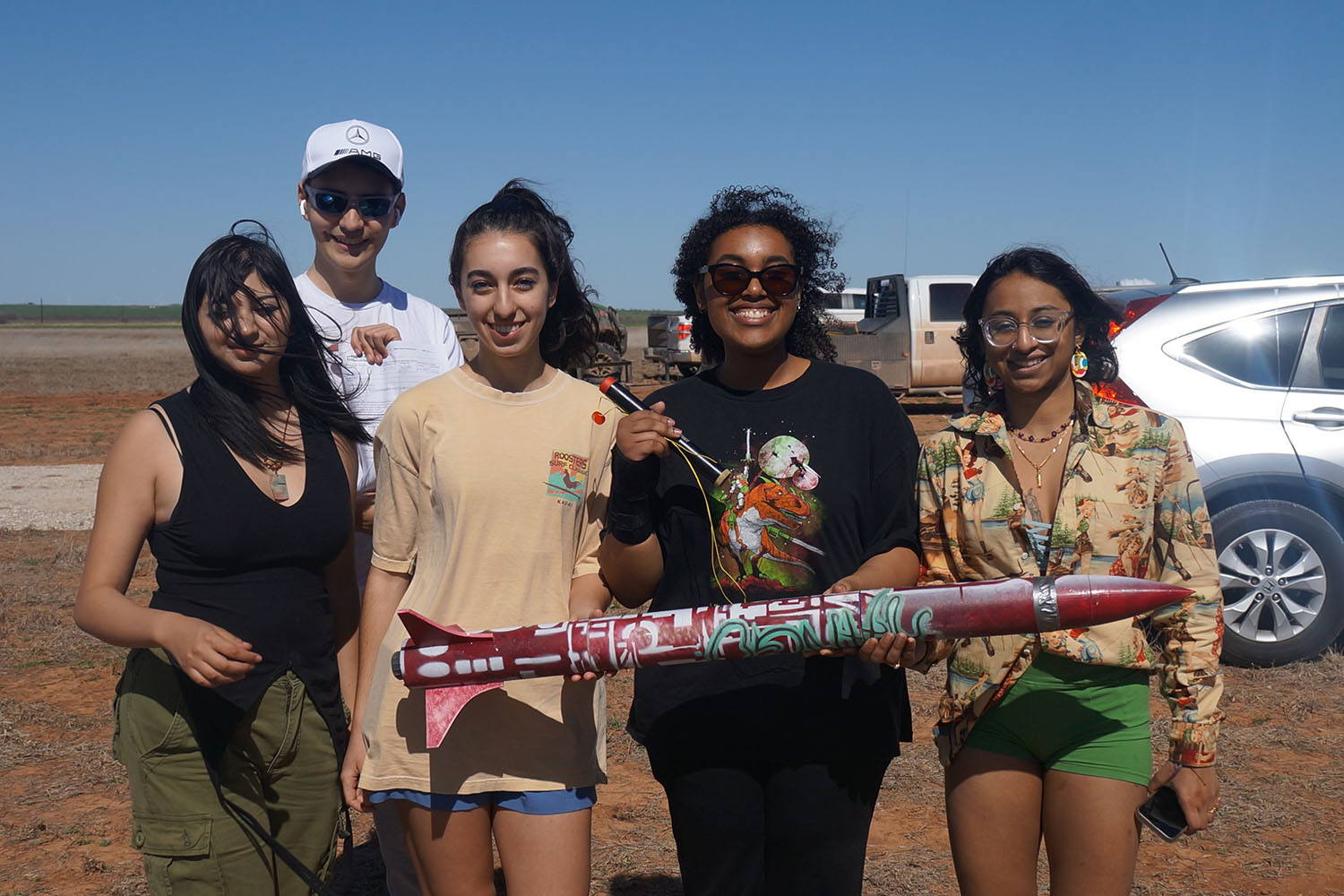Mechanical Engineering Student Soars with Aerospace Fellowship
By: Kim Horner | March 29, 2024

When Abeni Belay launched her first rocket with a University of Texas at Dallas student organization for aspiring aerospace engineers, it changed her career trajectory.
“I joined Comet Rocketry and fell in love with aerospace,” said the mechanical engineering junior, who now serves as an officer of Comet Rocketry, which is part of the UT Dallas student chapter of the American Institute of Aeronautics and Astronautics (AIAA).
Belay recently was named one of 29 students nationwide to receive a 2024 Patti Grace Smith Fellowship, which connects leading aerospace companies with talented Black students. The program offers students internships in the aerospace industry, personalized mentors and scholarships. Belay will intern this summer as a systems engineer at Sierra Space in Broomfield, Colorado, and travel to a conference with other fellows.
“I’m honored to be a Class of 2024 Patti Grace Smith Fellow,” Belay said. “I’m excited about the opportunity to work at Sierra Space and become part of the fellowship community.”
Growing up, Belay planned to pursue a career in medicine. When her interests changed, she majored in computer science at UTD, then switched to biomedical engineering. Eventually, she discovered that mechanical engineering was a better fit. Although UTD does not offer degrees in aerospace engineering, many of the University’s mechanical engineering classes teach the principles, such as propulsion, needed for aerospace careers.
“I’ve learned so much, and it’s really nice to apply the theories I’ve learned in classes to build things like rockets and rovers,” Belay said.
Dr. Joshua Summers, professor of mechanical engineering and interim associate dean for undergraduate studies in the Erik Jonsson School of Engineering and Computer Science, said he has seen student interest in aerospace grow in recent years as federal and private space exploration programs have expanded.

Summers, who has mentored Belay, said he advises students interested in aerospace to study mechanical engineering, which provides the qualifications they will need to work in the aerospace industry and keeps the door open to other career paths.
“I tell students who are interested in aerospace, ‘You can blaze your path through mechanical engineering,’” Summers said.
UT Dallas offers a range of classes and opportunities for students interested in aerospace, including its AIAA chapter. Comet Rocketry students build L1 rockets, the lowest class of high-powered rocketry, which can reach altitudes of about 4,000 feet. Belay and her team plan to compete in the Spaceport America Cup, an international intercollegiate competition that will be held June 17-22 in New Mexico.
AIAA UTD members also participate in the international organization’s design, build and fly competition for remote-controlled aircraft. The UTD chapter of SAE International includes an aerospace subgroup, too, and a student team is among 13 groups in the nation selected to present a prototype of its space exploration technology at NASA’s Johnson Space Center in June as part of the Micro-g Neutral Buoyancy Experiment Design Teams challenges.
In addition to studying for her classes and building rockets, Belay serves as a peer advisor in the engineering Living Learning Community and leads the University Rover Challenge project for Comet Robotics. After graduation, Belay hopes to work in the aerospace industry. Her goal is to earn a doctoral degree in mechanical engineering and teach at a university.
“I’m thankful that UTD has given me the flexibility to jump around and try new things,” she said.
Belay believes her experience at the University will make her a better engineer.
“I think of an engineering degree as a degree that teaches you how to problem-solve,” Belay said. “Since I have experiences from things like biomedical engineering and computer science, I can use all these things that aren’t traditionally taught in an engineering program, no matter what path my career takes.”
Media Contact: Kim Horner, UT Dallas, 972-883-4463, kim.horner@utdallas.edu, or the Office of Media Relations, UT Dallas, (972) 883-2155, newscenter@utdallas.edu.





